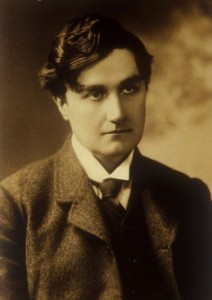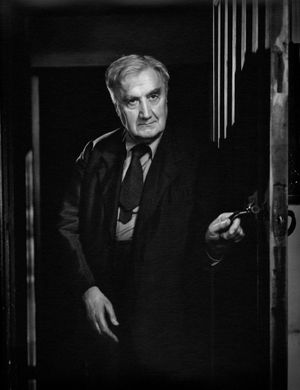Ralph Vaughan William’s first critical and popular success came fairly late, when he was 33. This was the remarkable song for chorus and orchestra Toward the Unknown Region, based on Walt Whitman’s poem from the “Whispers of Heavenly Death” section of Leaves of Grass :
Darest thou now, O Soul,
Walk out with me toward the Unknown Region,
Where neither ground is for the feet, nor any path to follow?
No map, there, nor guide,
Nor voice sounding, nor touch of human hand,
Nor face with blooming flesh, nor lips, nor eyes, are in that land.
I know it not, O Soul,
Nor dost thou, all is a blank before us,
All waits, undream’d of, in that region, that inaccessible land.
Till, when the ties loosen, 10 All but the ties eternal, Time and Space, Nor darkness, gravitation, sense, nor any bounds, bound us.
Then we burst forth,we float,
In Time and Space, O Soul, prepared for them,
Equal, equipt at last, (O joy! O fruit of all!) them to fulfil, O Soul.
This piece has subsequently been set to music many times, by composers as diverse as Henryk Górecki, William Schuman, and Philip Glass. But when Vaughan Williams presented his version in 1907, it drew attention to him as part of a technical and aesthetic vanguard that would soon transform English music. Vaughan Williams had been handed the book by an old school friend, Bertrand Russell. It was circulating among young troublemakers. While we can’t recapture the feeling of radicalism that was sensed in RVW’s music, we can appreciate the fact that it is composed with a fine balance of emotional impact and technical precision. I’m no musician, but I can follow a score while listening, and Vaughan Williams’ artistry as a young composer leaps from the page.
Fast forward to 1934, and Vaughan Williams was still questing, still innovating, still searching for new ways to express himself. His fourth symphony, which I also listened to with the score in hand, is a startling contrast to the pleasant programmatic style of the second and third symphonies. In fact, it’s rather severe, and disturbing. It’s intended to be “pure” composition, suggesting no extra-musical imagery. Vaughan Williams was even quoted as saying of it, “I don’t know whether I like it, but it’s what I meant.” I don’t think it appeals to the average Vaughan Williams fan, who probably prefers the larks and fens and drifting clouds and other Wind in the Willows elements that are usually associated with the composer. But I really like this symphony, and think it shows why his more impressionist works have an underlying depth that gives them vigour. I have only one recording, an ancient vinyl conducted by Adrian Boult. It’s the only Vaughan Williams symphony I don’t have on CD. A bit of trivia: The Klingon theme, used in nearly every version of Star Trek since the original, is lifted from the 3rd movement.
The second photo, showing a mature Vaughan Williams, is of course by the incomparable portrait photographer Yousuf Karsh, of Ottawa.


0 Comments.